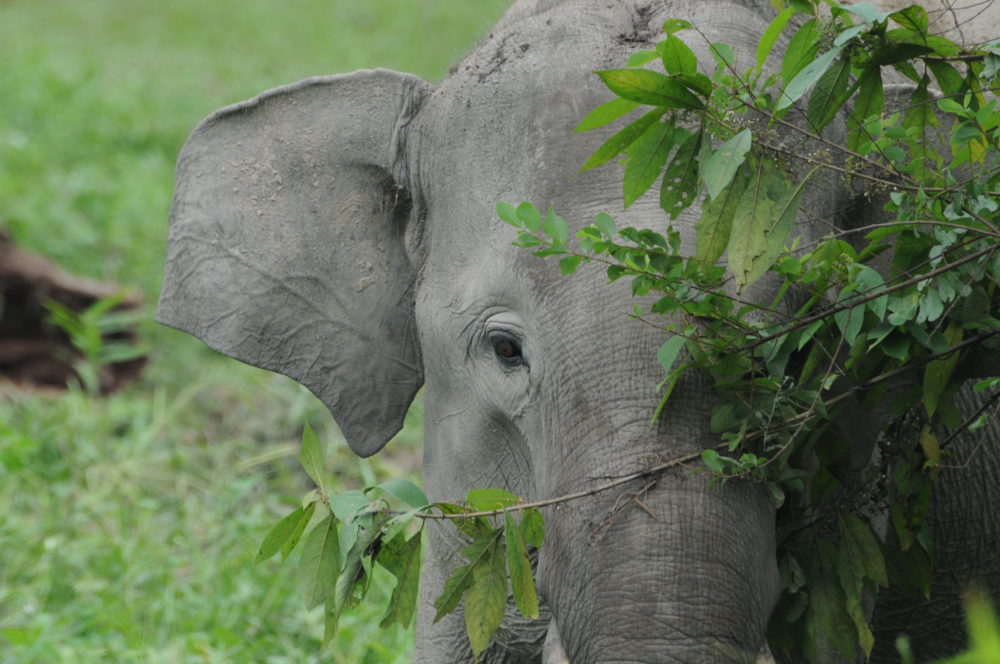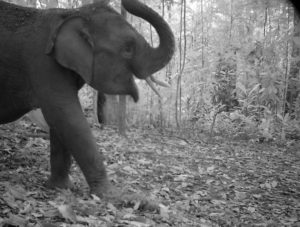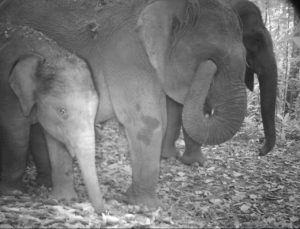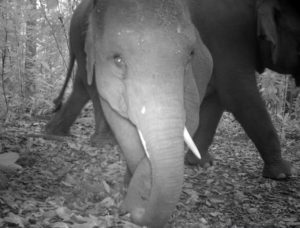Sumatran elephants in Indonesia

Status
Critically endangered
Population
Estimated at less than 1500 across Sumatra
Scientific name
Elephas maximus sumatranus
The Sumatran elephant, a subspecies of the Asian elephant, is critically endangered and is found only in Sumatra, Indonesia. However, the lack of information about Sumatran elephant distribution, habitat use and home ranges makes it difficult to plan effective conservation strategies, and further research is needed to prevent their extinction.
The problem
Sumatran elephants in the Leuser Ecosystem and associated nearby forest areas in Northern Sumatra, Indonesia, are sadly severely threatened by the conversion of forests into farmland and palm oil plantations. Other serious threats to their homes include timber concessions, illegal logging and burning, mining, quarrying, and expansion of roads and settlements. All of these actions have devastating impacts such as forest loss, severe fragmentation and direct threats on animals – either by poaching or killing as a result of human-wildlife conflict. Clearing elephant habitat is increasing human-elephant interactions and serious conflicts demonstrated by the increased rate of poisoning of elephants in recent years. Worryingly, there are now plans for the development of a road through Leuser that would open the park up to more threats and illegal activities throughout the now relatively well protected interior regions.
Effective mitigation is needed and depends upon our team on the ground applying tested strategies that take into consideration the needs of local communities and wildlife. At the same time, habitat restoration and protection projects, and the planning of forest corridors, require sound scientific data on the habitat needs and home range sizes of elephants. And we don’t currently have that data.
The solution
We have a team of specialists, led by Amanda Korstjens, ready to gather the information we need to save these elephants. The various team members have expertise in wildlife conservation, remote sensing, landscape ecology, primatology, and elephant conservation. They have formed the “LEAP: Landscape Ecology and Primatology” programme which investigates how tropical deforestation and degradation is impacting the stability of ecosystems, carbon pools, and species survival.
With local collaborators (the Leuser Conservation Forum and Nature Conservation Agency, Indonesia) the aim is to tackle illegal land conversions, direct human elephant conflicts, and general on-the-ground wildlife protection. This project will investigate what type of forest the elephants need, by noting the vegetation characteristics of areas frequented by the animals. And they will determine how much land the local elephant population needs for survival by tracking radio-collared individuals. They we can work out the best design of forest corridors to ensure that individuals will use them to migrate between fragmented forest patches. And finally, but importantly, we will also investigate the nature and scale of human elephant conflict in the region and the best way to reduce these conflicts, before it is too late. Will you help support this urgent work by making a donation to PTES today?
Latest news
- Our team recently sent through these wonderful photos from the camera traps in Sikundur.



- You can also support the project by helping to spread the word via the Love the Leuser site.
